World Geography And Politics Daily News | 19 Jun 2023

Views (141)
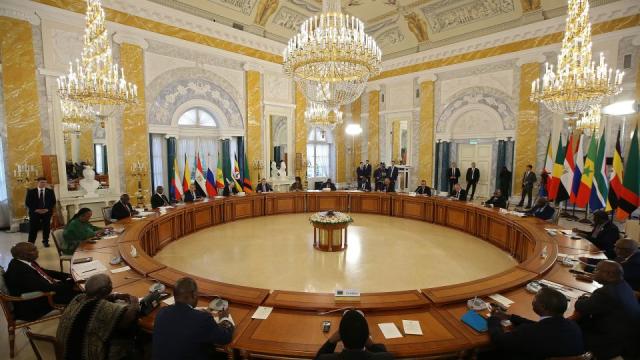
Ukrainian Foreign Minister thinks Putin will be able to "find a way" to explain to Russians the loss of Crimea and other occupied parts of Ukraine
Dmytro Kuleba, Ukraine's Minister of Foreign Affairs, is convinced that after Russian Presidential Spokesman Dmitry Peskov claimed that Ukraine has been "demilitarised", Russian President Vladimir Putin will be able to find a way to explain the loss of Crimea and other Russian-occupied parts of Ukraine to Russian citizens.
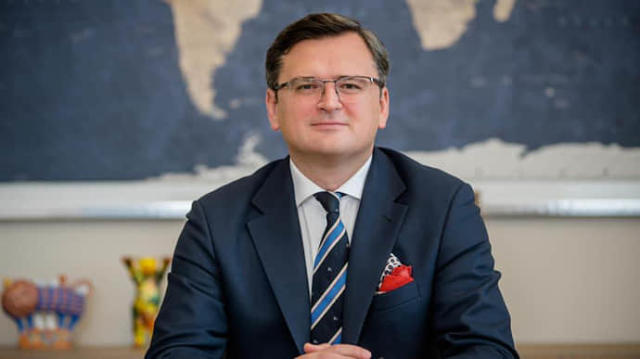
Dmytro Kuleba, Ukraine’s Minister of Foreign Affairs, is convinced that after Russian Presidential Spokesman Dmitry Peskov claimed that Ukraine has been "demilitarised", Russian President Vladimir Putin will be able to find a way to explain the loss of Crimea and other Russian-occupied parts of Ukraine to Russian citizens.
Quote from Kuleba: "Next, [Putin will claim that – ed.] the ‘special military operation’ has achieved all of its goals. That Ukraine, as a member of the EU and NATO, will not be able to attack Russia. That Crimea will no longer be a burden on Russia’s budget, that the only Nazis that remain are in Russia, and that the losses of Russian military personnel and equipment in Ukraine – the extent of which must remain secret – have helped [Russia] figure out what it did wrong, and will ultimately make it stronger. [Putin will then be able to claim that] Russia is as strong as ever."
Details: Kuleba stressed that Ukraine is right to tell its partners that Putin will be able to explain Russia losing Crimea and the rest of Ukraine to Russian citizens.
"The crucial thing for [Ukraine’s] partners is to not be afraid of global changes and to not stop supporting Ukraine. Life without a modern Russia is possible. And we continue to work on new weapons for Ukraine’s defence forces, on strengthening the international coalition to support [Ukraine’s] Peace Formula, and on restoring Ukraine every single day. All this will come," Kuleba stressed.
Fact-Checking Nikki Haley on the Campaign Trail
Nikki Haley, the former governor of South Carolina, was the first prominent candidate to announce a challenge to former President Donald Trump’s bid for the Republican presidential nomination. Since entering the race in February, Haley has weighed in on social issues and tapped into her experience as a former United Nations ambassador under Trump to criticize current U.S. foreign policy. Sign up for The Morning newsletter from the New York Times Here’s a fact check of her recent remarks on the c
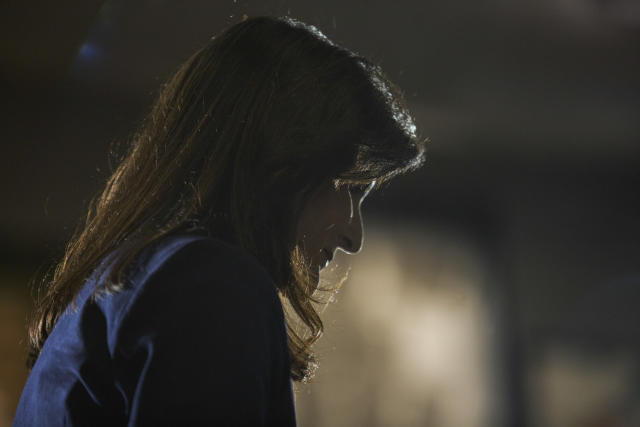
Nikki Haley, the former governor of South Carolina, was the first prominent candidate to announce a challenge to former President Donald Trump’s bid for the Republican presidential nomination.
Since entering the race in February, Haley has weighed in on social issues and tapped into her experience as a former United Nations ambassador under Trump to criticize current U.S. foreign policy.
Here’s a fact check of her recent remarks on the campaign trial.
Sex and gender issues
What Haley said:
“Roe v. Wade came in and threw out 46 state laws and suddenly said abortion any time, anywhere, for any reason.”— in a CNN town hall in June
This is exaggerated. Haley is overstating the scope of the landmark ruling Roe v. Wade, which established a constitutional right to abortion. The 1973 decision also ensured that states could not bar abortions before fetal viability, or when a fetus cannot survive outside the womb. That is not the same as “any time,” as Haley said. That moment was around 28 weeks after conception at the time of the decision and now, because of advances in medicine, stands at around 23 or 24 weeks.
Before the Supreme Court overturned Roe in June 2022, most states had laws banning the procedure at some point, with 22 banning abortions between 13 and 24 weeks and 20 states barring abortion at viability. A spokesperson for Haley noted that six states and Washington, D.C., had no restrictions when Roe was overturned.
What Haley said:
“How are we supposed to get our girls used to the fact that biological boys are in their locker rooms? And then we wonder why a third of our teenage girls seriously contemplated suicide last year.”— in the CNN town hall
This lacks evidence. In February, the Centers for Disease Control and Prevention reported record levels of sadness and suicidal ideation among teen girls. And depression among teenagers, particularly girls, has been increasing for over a decade. The causes are debated, but experts said no research points to the presence of trans youth athletes in locker rooms, or increased awareness of LGBTQ issues in general, as a causal or even contributing factor.
“I can say unequivocally that there is absolutely no research evidence to support that statement,” said Dr. Kimberly Hoagwood, a child psychologist and professor at New York University. “The reasons for the increased prevalence of depression and suicide among teenage girls are complex, but have been researched extensively.”
Dr. David Brent, a professor of psychiatry at the University of Pittsburgh, noted that teen depression rates have been increasing since the 2000s while widespread discussion and awareness of gender issues are a more recent development.
“It could be stressful for some people, for the trans kids as well,” he said. “But to try to say that this is the cause, well, it just can’t be because this is a public health crisis has been going on for 15 years.”
Possible factors in rising rates of teen depression include economic stress, the rise of social media, lower age of puberty, increased rates of opioid use and depression among adult caretakers, Brent said. There is also the general decrease in play and peer-related time, decreases in social skills, and other social problems, Dr. Elizabeth Englander, a child psychologist and professor at Bridgewater State University, wrote in an email. LGBTQ youth also have a higher risk for mental health issues, according to the Centers for Disease Control and Prevention.
“Even if someone has found an association between being around trans or LGBTQ youth and increased depression in heterosexual youth (which, to my knowledge, no one has), it seems incredibly unlikely that such contact is an important cause of the current crisis in mental health that we see in youth,” Englander added, calling Haley’s theory “outrageous.”
Foreign policy
What Haley said:
“If we want to really fix the environment, then let’s start having serious conversations with India and China. They are our polluters. They’re the ones that are causing the problem.”— in the CNN town hall
This needs context. Haley has a point that China is the top emitter of greenhouse gasses and India is the third-largest emitter, according to the latest data from the European Commission. But the United States is the second-largest emitting country.
Moreover, India and China are the most populous countries in the world and release less emissions per capita than many wealthier nations. In 2021, China emitted 8.7 metric tons of carbon dioxide per capita and India 1.9 metric tons, compared with the 14.24 metric tons of the United States.
Haley’s spokesperson noted that emissions from China and India have increased in recent years, compared with the United States’ downward trend, and are the top two producers of coal.
Still, the two developing countries bear less historical responsibility than wealthier nations. The United States is responsible for about 24.6% of historical emissions, China 13.9% and India 3.2%.
What Haley said:
“Last year, we gave over $50 billion in foreign aid. Do you know who we gave it to? We gave it to Pakistan that harbored terrorists that try to kill our soldiers. We gave it to Iraq that has Iranian influence, that says ‘death to America.’ We gave it to Zimbabwe that’s the most anti-American African country out there. We gave it to Belarus who’s holding hands with Russia as they invade Ukraine. We gave money to communist Cuba, who we named a state sponsor of terrorism. And yes, the most unthinkable, we give money to China.”— in a June fundraiser in Iowa
This is misleading. In the 2022 fiscal year, which ended in September, the United States gave out $50 billion in foreign aid. But the six countries Haley singled out received about $835 million total in aid or 1.7% of the total. Moreover, most foreign aid — about 77%, according to the nonpartisan Congressional Research Service — is channeled through an American company or nonprofit, international charity or federal agency to carry out projects, and not handed directly to foreign governments.
Zimbabwe received $399 million, Iraq $248 million, Pakistan $147 million, Belarus $32.8 million, Cuba $6.8 million and China $1.7 million.
The biggest single contracts to aid Zimbabwe and Pakistan were $30 million and $16.5 million to the World Food Program to provide meals and alleviate hunger. In Iraq, the largest contract of $29 million was awarded to a United Nations agency. And in Cuba, the third-largest contract was carried out by the International Republican Institute — a pro-democracy nonprofit whose board includes Sen. Joni Ernst of Iowa, the host of the fundraiser Haley was speaking at.
In comparison, the country that received the most foreign aid, at about $10.5 billion or a fifth of the total amount, was Ukraine, followed by Ethiopia ($2.1 billion), Yemen ($1.4 billion), Afghanistan ($1.3 billion) and Nigeria ($1.1 billion).
An additional $12 billion was spent on global aid efforts in general, including about $4 billion in grants to the Global Fund, an international group that finances campaigns against HIV, tuberculosis and malaria.
Domestic policy
What Haley said:
“We will stop giving the hundreds of billions of dollars of handouts to illegal immigrants.”— in the CNN town hall
This is disputed. Immigrants living in the United States illegally are barred from benefiting from most federal social safety net programs such as Medicaid and food stamps. But Haley’s spokesperson gave examples of recent payments made by local governments that allowed such immigrants to participate in benefit programs: $2.1 billion worth of one-time payments of up to $15,600 to immigrants in New York who lost work during the COVID-19 pandemic, totaling $2.1 billion; $1 million for payments to families in Boston during the pandemic; permitting immigrants to participate in California’s health care program for low-income residents, which could cost $2.2 billion annually.
These, however, do not add up to “hundreds of billions.” That figure is in line with an estimate from an anti-immigration group that other researchers have heavily criticized for its methodological flaws.
The group, the Federation for American Immigration Reform, estimated in March that illegal immigration costs the United States and local governments $135.2 billion each year in spending on education, health care and welfare, as well as another $46.9 billion in law enforcement.
But the Cato Institute, a libertarian think tank, has found that an earlier but similar version of the estimate overcounted welfare benefits that immigrants in the U.S. illegally receive, and undercounted the taxes they pay. The net cost, according to Cato, is actually $3.3 billion to $15.6 billion.
The American Immigration Council similarly concluded that education and health care account for more than half of the costs, and that the benefits were afforded to many American-citizen children of undocumented immigrants.
The estimated 11 million immigrants living in the United States illegally are barred from the vast majority of the federal government’s safety net programs. In 2017, the National Academies of Sciences, Engineering and Medicine found that immigration, illegal and legal, benefited the economy.
What Haley said:
“Let’s start by clawing back the $500 billion of unspent COVID dollars that are out there.”— in the CNN town hall
This is exaggerated. Haley overstated the amount of unspent coronavirus emergency funding. In reality, the amount is estimated to be much smaller, roughly $60 billion. What is more, a budget deal between President Joe Biden and Speaker Kevin McCarthy that was signed into law a day before Haley spoke rescinded about $30 billion of that leftover money.
Lawmakers passed trillions of dollars in economic stimulus and public health funding, most of which has been spent. The federal government’s official spending website estimates that Congress has passed about $4.65 trillion in response to COVID-19 (referred to as “budgetary resources”) and, as of April 30, paid out $4.23 trillion (or “outlays”), suggesting that about $423 billion has not gone out the door. But that calculation fails to consider the promises of payment (or “obligations”) that have been made, about $4.52 trillion. That is a difference of about $130 billion, but some initially approved funding that was unspent and not yet promised has expired.
In April, the Congressional Budget Office estimated that rescinding unobligated funding from six laws between 2020 and 2023 — the four coronavirus packages, Trump’s last spending measure, and Biden’s $1.9 trillion stimulus package — would amount to about $56 billion. The Committee for a Responsible Federal Budget, a nonpartisan group that supports reduced government spending, estimated about $55.5 billion in unspent funds.
c.2023 The New York Times Company
Miami's Francis Suarez bucking history as he tries to become first sitting mayor elected president
In a 2024 Republican presidential field full of long-shot candidates, Miami Mayor Francis Suarez may be — on paper anyway — the longest long shot of all. No sitting mayor has ever been elected U.S. president, a job that historically has been won by governors, vice presidents, senators or Cabinet secretaries. None of that has deterred Suarez, who announced his campaign this past week by talking up his experience leading the city of about 450,000 residents.
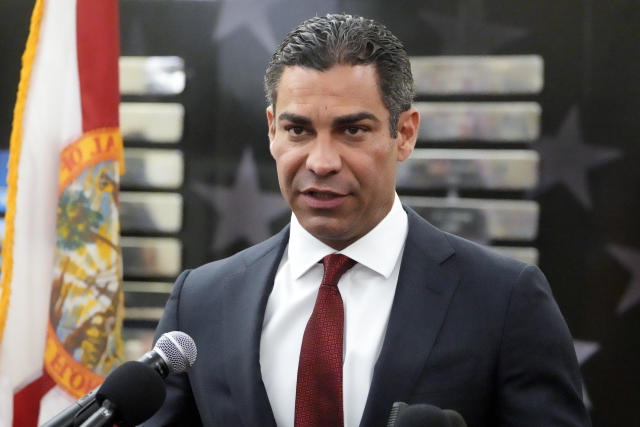
No sitting mayor has ever been elected U.S. president, a job that historically has been won by governors, vice presidents, senators or Cabinet secretaries. Some former mayors have become commander in chief, but only after serving in higher-profile positions.
“In Miami, we stopped waiting for Washington to lead,” Suarez said.
The 45-year-old corporate and real estate lawyer, a former president of the U.S. Conference of Mayors, is competing for the nomination against two other Florida residents — former President Donald Trump and Gov. Ron DeSantis. They have consistently been first and second, respectively, in early primary polling, well ahead of the rest of the field.
That has so far made it difficult for other candidates to break through. Among them are former Vice President Mike Pence, Sen. Tim Scott of South Carolina, former U.N. Ambassador Nikki Haley, former New Jersey Gov. Chris Christie, former Arkansas Gov. Asa Hutchinson, North Dakota Gov. Doug Burgum, radio host Larry Elder and businessman Vivek Ramaswamy.
Throughout U.S. history, just three presidents were former mayors, though each — Andrew Johnson, Grover Cleveland and Calvin Coolidge — held offices such as governor or vice president in between. And while this year's primary field is crowded and the odds for a sitting mayor long, there is recent precedent both for a mayor to become a major candidate and for a person without government experience at all to become president.
Trump, a businessman and former reality television star, is the only person elected president without ever having served in public office or in the military.
Buttigieg leaned heavily into his experience as mayor in his campaign, including his own work to turn around a Rust Belt city that was once described as “dying” because of the shutdown of manufacturing. He liked to tell voters that Washington should run more like the best U.S. cities.
Voters appreciated that being a mayor is a hands-on job and that mayors are accountable to voters in a way that senators and governors are not, said Lis Smith, a senior adviser to Buttigieg’s campaign who shaped his communications from the start. One of Buttigieg's favorite lines while campaigning was about how he frequently ran into his constituents at the grocery store. The fact that Buttigieg was not a product of Washington also “was very, very appealing to voters,” Smith said.
“Republican and Democratic voters don't have a lot in common these days, but I think that one thing they do share is their distaste for Washington politics and Washington politicians,” Smith said.
But Smith also warned that while mayors get to claim credit for all of the things that go right in their community, they also carry the responsibility for things that go wrong.
Then, briefly repeating his credentials as Miami's leader, he slipped for a moment into mayoral mode.
“I believe this city needs more than a shouter or a fighter,” Suarez said, apparently substituting “city” for “country.”
“I believe it needs a servant. It needs a mayor.”
Uganda school attack: 'Gospel songs interrupted by screaming'
Mourners of those killed by Islamist militants describe their shock about the raid's brutality.
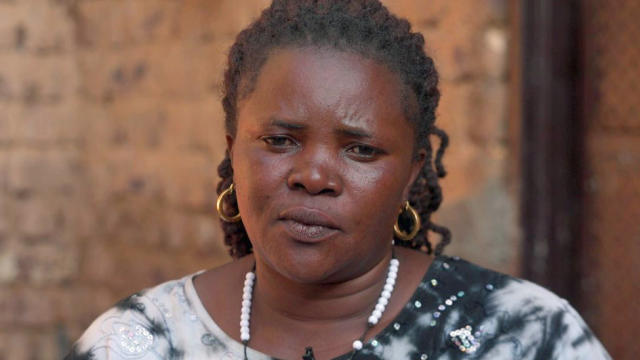
Pupils in Uganda were singing gospel songs before a deadly attack by Islamist militants on Friday, a woman who lives opposite the school says.
"Then I heard screaming," Mary Masika told the BBC. The vicious attack in Mpondwe left about 40 people dead.
Islamic State-linked militants have been blamed for the attack.
The Allied Democratic Forces (ADF) was created in the 1990s and took up arms against President Yoweri Museveni, alleging persecution of Muslims.
They are largely based in neighbouring Democratic Republic of Congo.
The Mpondwe Lhubiriha Secondary School attacked on Friday is close to the border.
Warning: Contains details some readers may find distressing
"I have been unable to eat or sleep since then," she told the BBC in Swahili.
The students usually sing before bedtime - and at first she and her daughter thought the noise that interrupted their songs at around 22:00 (20:00 GMT) suggested that they were having a bit of fun.
But it soon became clear that something horrific was under way at the school, which had around 60 boarders living in a small compound.
ADF rebels had entered dormitories, setting fire to them and using machetes to kill and maim students.
One family in Mpondwe held the funerals on Sunday for a father and son killed in the attack - 47-year-old security guard Elphanas Mbusa and 17-year-old Masereka Elton.
Their other son, 15-year-old Brian Muhindo who was also attending the school, is missing. They do not know if he is amongst the six boys kidnapped or one of those whose bodies cannot be identified because they have been so badly burned.
Hurubana Kimadi Onesmus told the BBC he found it difficult to understand how the attackers were able to infiltrate the school where his son, the security guard, worked and where his grandsons were studying.
"There is a very heavy military presence in the area," the 69-year-old said.
Now there is a lot of security at the school - and the BBC team was given only a few minutes to take some photos of the burnt buildings.
It was a devastating and upsetting scene.
Lots of dried blood is still on the ground outside the girls' dormitory - they had been attacked by machetes and others shot dead as they ran away.
The boys' dormitory had been locked - they had either refused to open it to the rebels or they were locked inside by them. The militants poured fuel on the building and set it alight.
Inside the smell of death is unmistakeable - beds have been reduced to wire mesh with pieces of flesh still stuck to them.
Ms Masika said towards the end of the attack, at around 23:30, she heard one of the assailants talking at her gate and asking a fellow fighter if "the job was done".
They were talking in Swahili - the lingua franca in the region - and afterwards began shouting "Allahu Akbar", meaning "God is greatest".
She said after these chants one of them added: "We have succeeded in destabilising Museveni's country."
In response, President Museveni vowed to send more troops to Rwenzori Mountains, which are along the border between Uganda and the DR Congo, saying: "Their action... the desperate, cowardly, terrorist action... will not save them."
The area around Mpondwe seems to be a mix of Christians and Muslims. Some of those attending the funerals on Sunday were dressed in traditional Muslim attire.
Other funerals for the pupils killed in the attack were held in villages across the region, with most people dumbfounded and pained by the brutality of the assault.
The woman who founded Father's Day was a renegade, great-granddaughter says
You could call her the mother of Father’s Day. The late Sonora Smart Dodd launched the celebration of dads in 1910 in her hometown of Spokane, Washington. It’s a tradition Dodd decided to start as she sat in a Spokane church on Mother’s Day 1909, listening to a sermon about — what else?
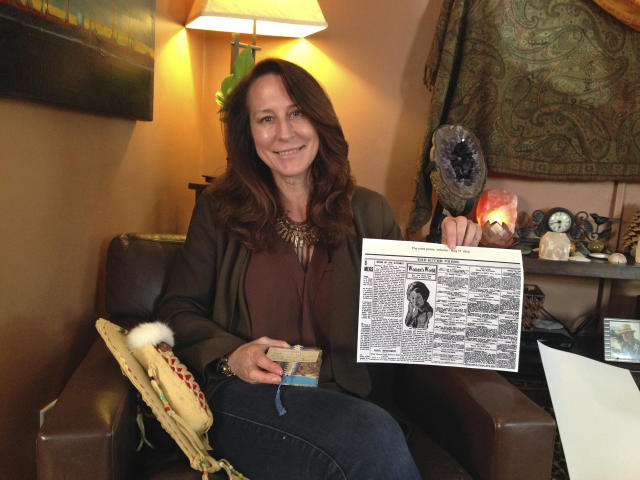
LOS ANGELES (AP) — You could call her the mother of Father’s Day.
The late Sonora Smart Dodd launched the celebration of dads in 1910 in her hometown of Spokane, Washington. As a result, she is the one responsible for those annual gifts that run the gamut from embarrassingly silly-looking neckties to kids’ finger paintings crafted with so much love by those tiny hands that they can bring a tear to the eye of even the most stoic father.
It’s a tradition Dodd decided to start as she sat in a Spokane church on Mother’s Day 1909, listening to a sermon about — what else? — Mother’s Day.
“And it bugged her,” Dodd’s great-granddaughter, Betsy Roddy, told The Associated Press in 2017. “She thought, ’Well, why isn’t there a Father’s Day?”
Dodd and her five younger brothers, after all, had been raised by their father after their mother died in childbirth in 1898.
William Jackson Smart became a farmer after fighting in the Civil War. He not only held down both parental roles but did it with “leadership and love,” his daughter always said, and she believed he ought to get some credit.
“So she worked tirelessly with the local clergy and got the YWCA on board, and they had their first Father’s Day in Spokane in 1910,” said Roddy, displaying a copy of The River Press of Fort Benton, Montana, which reported on the event.
Although that story predicted the celebration would go nationwide by the next year, Father’s Day was slow to catch on. So much so that Dodd spent the next 62 years lobbying everyone from presidents to retailers for support.
Finally, in 1972, President Richard Nixon declared the third Sunday of June a federal holiday honoring dads. Dodd, who died at age 96 in 1978, had lived to see her dream come true.
A Renaissance woman, the Mother of Father’s Day was a painter, poet and businesswoman, running a funeral home with her husband while raising the couple’s only son, a future father named Jack.
“I take a great deal of pride in that renegade spirit that she clearly had,” said Roddy, marketing director for a large Los Angeles company.
Dodd’s great-granddaughter inherited some of that spirit herself. Raised in Washington, D.C., she earned a bachelor’s degree in English from Penn State before heading to Europe for several years of backpacking between studies at Vienna’s Webster University, where she earned a master’s degree in international business.
Moving to Los Angeles decades ago, she found her niche here in marketing and stayed, eventually moving into a Craftsman-style home on the city’s west side, where she lives with her two dogs.
The only child of an only child and recently widowed after 24 years of marriage, Roddy never had children of her own. That not only leaves her with the title of Great-Granddaughter of Father’s Day but also assures she is the last direct descendant of the holiday’s creator.
Although she’s always been well aware of that legacy, she’s never talked about it publicly until now.
She began to get more involved after MyHeritage.com, the company that helps people trace family histories, asked if she knew her family’s story.
Learning that she did, MyHeritage dug up historical documents about Dodd that Roddy says even she and her mother didn’t know existed. They are considering eventually turning over some of their artifacts to a museum.
As a child, Roddy said, she loved her great-grandmother deeply, visited her every year and treasures the poems, books and notes she gave her, including one welcoming her to the world on the year she was born. She still keeps it, in pristine condition, in a small box in her home.
Still, as a child, Roddy says, she took Father’s Day largely for granted, concluding the elaborate celebration, including the special card for her great-grandmother, was just something her family did. Even as an adult, she’s generally kept quiet about being the ultimate Father’s Day insider, leaving it to her mother to spread the word.
But no more.
“It’s time for me to pick up the baton and carry it proudly,” she says with a smile. “I’m the last direct descendant. The legacy is here, which is an honor.”
___ This story was first published in 2017. Rogers retired from The Associated Press in 2021.
Putin blames Ukraine for lack of talks as African leaders press for peace
African leaders pressed for peace in Ukraine as they met Vladimir Putin in St. Petersburg Saturday but the Russian leader blamed Kyiv for a lack of talks.
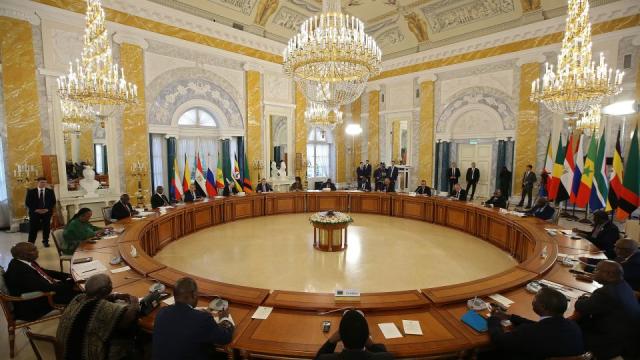
The high-level Africa delegation traveled first to Ukraine and then to Russia with the long-shot goal of bringing the warring sides to the negotiating table.
Leading the delegation was South African President Cyril Ramaphosa, who called for “the war to be ended.”
Putin reiterated the standard Kremlin line that Moscow is “open to dialogue with Ukraine” but that it was Kyiv who was refusing to talk.
“We salute the balanced approach of our African friends to the Ukrainian crisis. […] We are open to a constructive dialogue with all those who want peace based on the principles of justice and consideration of the legitimate interests of the parties,” Putin said.
Russia wants recognition of the territory it has either annexed or occupied, something which is out of the question for Ukraine.
Many African countries have been hit hard by the Ukraine war, well into its second year, particularly as a result of soaring grain prices.
Putin said the turmoil in the global food market was the fault of Western nations’ policies and not a consequence of the war in Ukraine.
Ramaphosa raised this, saying “all children who have been caught up in this conflict to be returned to their homes” but Putin again denied illegally taking children from Ukraine.
They were initially greeted with explosions and forced to take shelter in bunkers as Russian airstrikes hit the capital.
The delegation voiced concerns that the continent of Africa was suffering under a prolonged conflict, with Ramaphosa insisting to Zelensky that “there should be peace through negotiations.”
But Zelensky rebuffed efforts to bring Kyiv to the negotiating table imminently, and ruled out any peace negotiations with Russia until Moscow’s troops withdraw from his country’s territory.
“Today, I have clearly said repeatedly at our meeting that to allow any negotiations with Russia now that the occupier is on our land means to freeze the war, to freeze pain and suffering,” he told journalists in a press conference after the meeting.
The African leaders did not carry any message from Ukrainian President Volodymyr Zelensky to their three-hour meeting with Putin, Kremlin spokesman Dmitry Peskov said.
Ramaphosa’s office had previously described the peace initiative as “the first time that Africa is united behind the resolution of a conflict outside of our continent, and where you have a group of African heads of state and government traveling together in an attempt to find a path to peace to this conflict.”
Western nations have criticized some African countries for not condemning Russia’s invasion of Ukraine and conspicuously stayed away from votes denouncing the invasion at the United Nations General Assembly.
Meanwhile, South Africa’s Ramaphosa has been clear that he will not “take sides in a contest between global powers” and that he is pushing for a negotiated end to the conflict.
CNN’s Sarah Dean, Olga Voitovych, Nimi Princewell and Niamh Kennedy contributed reporting.
0 Likes
